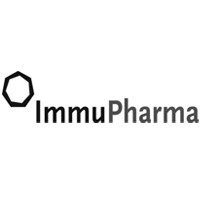The Life Sciences Division (TLSD), a specialist investment bank to global life sciences companies, today announced an update report on ImmuPharma plc, a pharmaceutical development company listed on AIM of the London Stock Exchange focusing on developing novel medicines with high sales potential in specialist markets with serious unmet need.
Summary highlights of the update include:
AstraZeneca (LON: AZN) announced topline data from its second Phase III clinical trial in Lupus patients, comparing Anifrolumab, a monoclonal antibody developed for SLE (Systemic Lupus Erythematosus) in a study entitled TULIP II, to the current standard of care (corticosteroids). The Phase III study successfully met both its primary and secondary endpoints – the company briefly stated that the results showed both a statistically significant and clinically meaningful improvement (reduction) in disease activity when compared to standard of care (placebo).
LupuzorTM offers an attractive licensing and development opportunity. It has demonstrated an extremely robust safety profile with a de-risked asset, as evidenced by the 70% response rate in the European cohort of patients from the first Phase III clinical trial (which was statistically significant and clinically meaningful). We believe that this could offer a multitude of advantages over a more traditional monoclonal antibody approach (e.g. Benlysta and Anifrolumab) including better targeting of a Lupus specific pathway, more convenient dosing (subcutaneous not intravenous), better cost of goods and margins, and the ability to offer investors deep value, based on the current market capitalisation of ImmuPharma plc (LON: IMM).
Dr. Navid Malik, Head of Life Sciences Research, (TLSD) said:
“Lupus still represents a major area of unmet medical need and there is a strong need for safe and efficacious products. We believe that the recent update for Anifrolumab is positive for the Lupus field, but also reminds us that LupuzorTM could represent a highly successful product if it successfully navigates a second Phase III clinical trial. Now that we understand the target patient group of Lupus patients who respond best to the drug, we see the path to market as being de-risked.”
The 7 page update research report on ImmuPharma Plc, entitled “AstraZeneca’s AnifrolumabTM successfully navigates the complexity of a Phase III lupus clinical trial, will LupuzorTM be next?” is available to institutional clients by contacting The Life Sciences Division by email on [email protected] please note this research is restricted to professional clients, and is to be considered non-independent research and should be treated as a marketing communication as it has not been prepared in accordance with legal requirements designed to promote the independence of investment research and is not subject to any prohibition on dealing ahead of the dissemination of investment research, such restrictions as per the FCA conduct of business sourcebook on investment research.








































